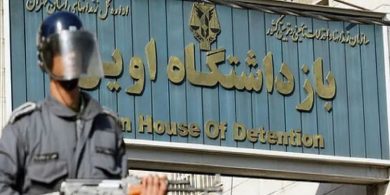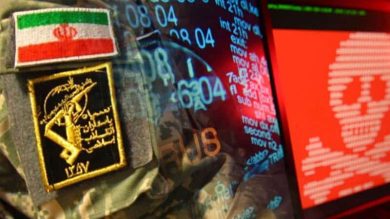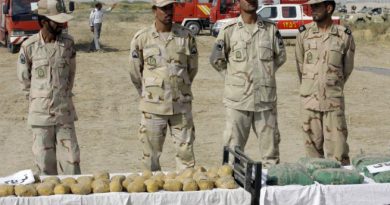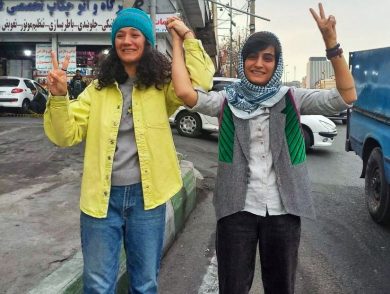The Islamic Revolutionary Guard Corps (IRGC) is widely recognized as a central player in the political, military, and ideological conflicts that plague the Middle East and extend beyond the region. Established in 1979 following Iran’s Islamic Revolution, the IRGC was initially created to safeguard the new regime and uphold the principles of the revolution. Over time, it has evolved into a powerful force influencing Iran’s domestic and foreign policies. However, its activities have not been confined to national borders. The IRGC has been a major source of instability in the Middle East, using a combination of military operations, support for proxy groups, and ideological influence to project power and further Iran’s strategic goals.
The IRGC’s Ideological and Strategic Agenda
At its core, the IRGC is driven by an ideological mission to export Iran’s revolutionary principles. This goal is deeply tied to the concept of Velayat-e Faqih (Guardianship of the Islamic Jurist), which grants Iran’s Supreme Leader ultimate authority over the state. This ideology underpins Iran’s foreign policy and the IRGC’s activities abroad, promoting a vision of regional hegemony that challenges Western influence and the sovereignty of neighboring states.
The IRGC views the Middle East as a battleground for its strategic ambitions. By creating a network of proxy forces and exploiting regional divisions, it seeks to consolidate Iran’s influence while destabilizing governments perceived as adversarial. This approach enables Tehran to pursue its objectives without direct confrontation, often at a devastating cost to regional stability.
Key Areas of Destabilization
1. Syria: Propping Up a Brutal Regime
The IRGC has played a pivotal role in the Syrian Civil War, providing critical support to President Bashar al-Assad’s regime. When the conflict began in 2011, Assad’s hold on power was under threat, and the IRGC intervened to secure Iran’s ally. Through its elite Quds Force, the IRGC deployed military advisors, organized militias, and funneled arms and funds to pro-Assad forces.
One of the IRGC’s most notorious actions in Syria has been its recruitment and deployment of foreign fighters. These militias, drawn from countries like Iraq, Afghanistan, and Pakistan, have committed numerous atrocities, exacerbating the humanitarian crisis and prolonging the conflict. By ensuring Assad’s survival, the IRGC has entrenched Iran’s influence in Syria, creating a corridor of power that stretches from Tehran to the Mediterranean.
2. Lebanon: Strengthening Hezbollah
In Lebanon, the IRGC’s most prominent proxy is Hezbollah, a Shia militant group and political party. Since its creation in the 1980s, Hezbollah has relied on the IRGC for funding, training, and weapons. This relationship has transformed Hezbollah into one of the most formidable non-state actors in the region.
Hezbollah serves as a tool for Iran’s regional strategy, acting as both a deterrent against Israel and a means of projecting power in Lebanon’s political system. The group’s military capabilities and its periodic conflicts with Israel have destabilized the region, while its role in Lebanon’s government has deepened political divisions and undermined state sovereignty.
3. Iraq: Exploiting Post-Invasion Chaos
The 2003 U.S. invasion of Iraq created a power vacuum that the IRGC was quick to exploit. Through the Quds Force, it established ties with various Shia militias, many of which later coalesced into the Popular Mobilization Forces (PMF). While these groups initially gained legitimacy by fighting ISIS, they have since been accused of human rights abuses, sectarian violence, and undermining Iraq’s fragile political stability.
The IRGC’s involvement in Iraq extends beyond militias. It has also exerted influence over Iraqi politics, leveraging its relationships with key political figures and parties to shape the country’s policies in Iran’s favor. This interference has fueled tensions between Iraq’s diverse communities and hindered efforts to establish a unified, stable state.
4. Yemen: Fueling a Protracted Conflict
The IRGC’s support for the Houthi rebels in Yemen has turned a local conflict into a proxy war with regional implications. By providing weapons, training, and financial aid, the IRGC has enabled the Houthis to challenge the Saudi-led coalition and destabilize the Arabian Peninsula.
One of the most significant consequences of this intervention has been the humanitarian catastrophe in Yemen. The conflict has left millions on the brink of famine and caused widespread suffering. The IRGC’s involvement has also increased the risk of escalation, as Houthi missile and drone attacks target Saudi Arabia and the UAE, threatening regional security.
5. Gulf States: Provocations and Proxy Threats
The IRGC’s activities are not limited to direct interventions. In the Persian Gulf, it has engaged in provocations such as seizing oil tankers, harassing naval vessels, and attacking energy infrastructure. These actions are designed to assert Iran’s dominance in the region and challenge U.S. and allied presence.
The IRGC has also supported dissident groups and militias in Gulf states like Bahrain, aiming to weaken rival governments and expand Iran’s influence. These actions contribute to an atmosphere of mistrust and heighten the risk of conflict.
The Global Impact of the IRGC
While the IRGC’s destabilizing activities are most evident in the Middle East, their consequences extend far beyond the region. The organization’s support for terrorism, illicit financial networks, and weapons proliferation poses a global threat.
Support for Terrorism
The IRGC’s backing of groups like Hezbollah, Hamas, and Palestinian Islamic Jihad fuels ongoing conflicts and undermines peace efforts. Its operations have been linked to terrorist attacks worldwide, including bombings in Argentina and Europe.
Illicit Financial Networks
The IRGC funds its activities through a web of illicit enterprises, including smuggling, money laundering, and sanctioned businesses. These networks not only sustain its operations but also erode the integrity of global financial systems.
Weapons Proliferation
The IRGC’s development and export of advanced weapons, such as ballistic missiles and drones, have heightened security concerns. These weapons often end up in the hands of proxy groups, increasing the lethality of regional conflicts.
Conclusion: A Call for Action
The IRGC’s role as a destabilizing force in the Middle East and beyond cannot be overstated. Its actions have caused untold suffering, undermined state sovereignty, and fueled cycles of violence. Addressing this threat requires a coordinated international response, including the designation of the IRGC as a terrorist organization, the enforcement of sanctions, and support for regional allies.
By exposing the IRGC’s activities and holding it accountable, the international community can take a critical step toward promoting stability, security, and justice in the Middle East and beyond. The IRGC Act Campaign stands as a testament to the need for collective action against state-sponsored terror and oppression. Together, we can challenge this menace and work toward a safer, more just world.
Join Our Newsletter!
Stay informed with the latest updates, news, and ways to take action in the fight for justice and global security. Sign up now to get updates delivered straight to your inbox!





